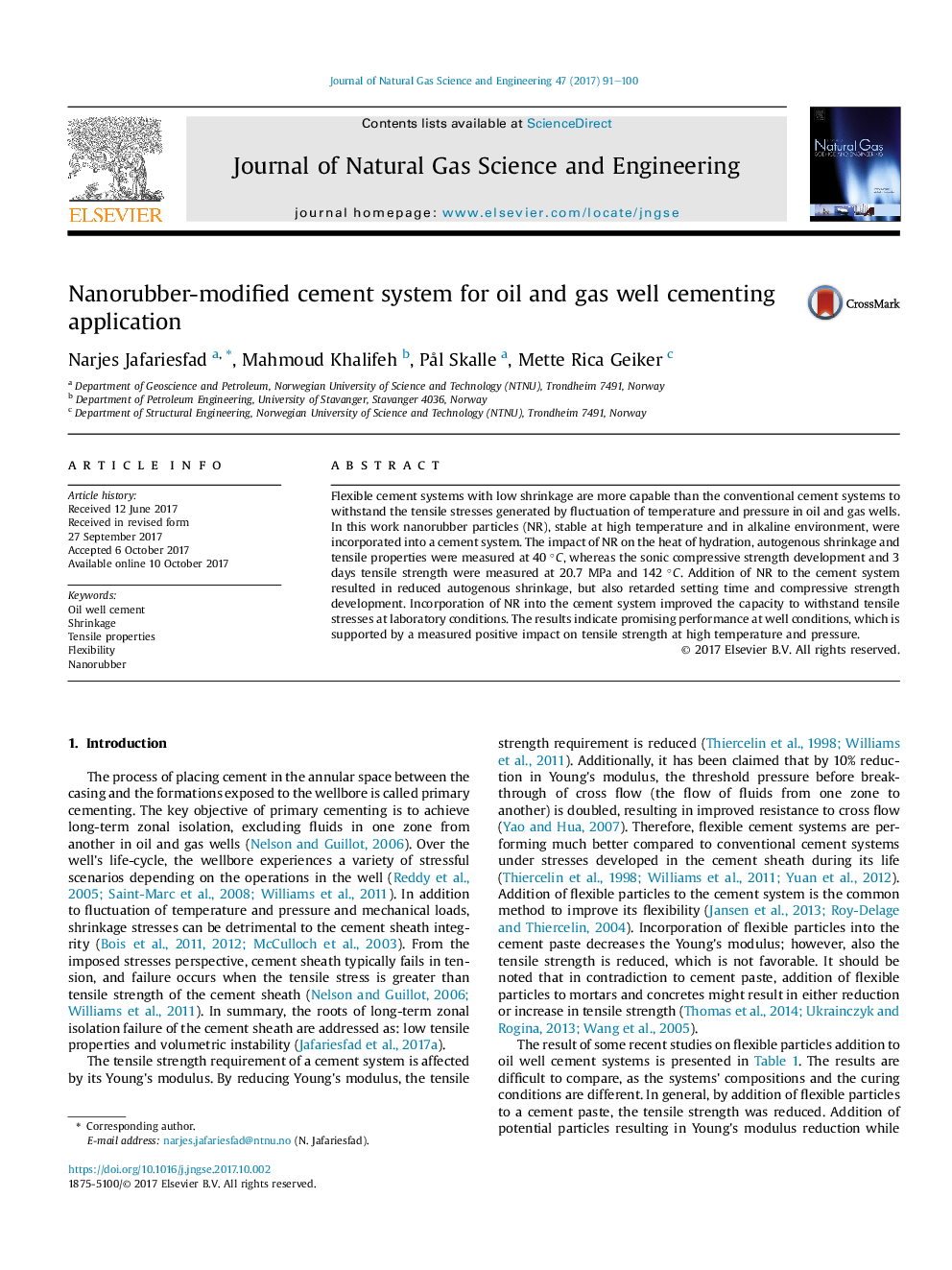| Article ID | Journal | Published Year | Pages | File Type |
|---|---|---|---|---|
| 5484695 | Journal of Natural Gas Science and Engineering | 2017 | 10 Pages |
Abstract
Flexible cement systems with low shrinkage are more capable than the conventional cement systems to withstand the tensile stresses generated by fluctuation of temperature and pressure in oil and gas wells. In this work nanorubber particles (NR), stable at high temperature and in alkaline environment, were incorporated into a cement system. The impact of NR on the heat of hydration, autogenous shrinkage and tensile properties were measured at 40 °C, whereas the sonic compressive strength development and 3 days tensile strength were measured at 20.7 MPa and 142 °C. Addition of NR to the cement system resulted in reduced autogenous shrinkage, but also retarded setting time and compressive strength development. Incorporation of NR into the cement system improved the capacity to withstand tensile stresses at laboratory conditions. The results indicate promising performance at well conditions, which is supported by a measured positive impact on tensile strength at high temperature and pressure.
Related Topics
Physical Sciences and Engineering
Earth and Planetary Sciences
Earth and Planetary Sciences (General)
Authors
Narjes Jafariesfad, Mahmoud Khalifeh, PÃ¥l Skalle, Mette Rica Geiker,
